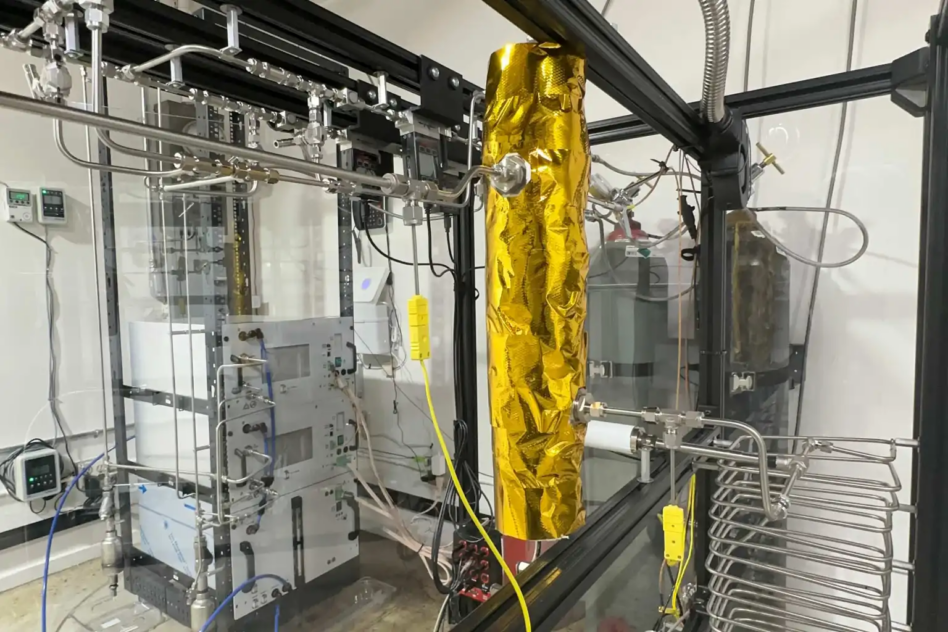General Galactic wants to change the way the world thinks about the green transition. The company raised $8M in a seed funding round this week to scale up its Genesis technology, which turns carbon pollution into fossil-free natural gas.
Harpoon Ventures and Refactor Capital led the round, with further support from Pathbreaker, BoxGroup, Seraphim, Plug and Play, Impact First, and Climate Capital. It brings the year-old CA-based startup’s total financing to $10M.
Let there be light: “So much of the green transition has been styled in a way of, ‘we need to move away from the past… and replace [it] with something new and clean,’” cofounder Halen Mattison told Payload. “[For] big things that need to go far: ships, planes, rockets—that’s not going to work.”
The solution? Using the pollutants billowing out of the current infrastructure to create a green energy source.
General Galactic adds water and renewable electricity to emissions to transform them into feedstocks—namely carbon dioxide and hydrogen—which are then pumped through its Genesis reactor to create renewable hydrocarbon fuels.
The pilot test of the Genesis system proved the technology can produce 2,000 liters of methane per day, which can power a wide range of terrestrial gas guzzlers. The system also spits out oxygen, which makes Genesis a uniquely renewable provider for launch companies who are increasingly using methalox fuel to reach orbit.
Destination Mars: General Galactic plans to use its seed funds to scale on all fronts. The company intends to hire a team of engineers and increase the production capacity of its Genesis systems to lower costs and reach a global market.
“The modular design that we focus on is intended to be able to deploy this, really, anywhere in the world, almost like a minimally invasive retrofit that is immediately providing access to reliable, fossil-free energy,” cofounder Luke Neise said.
The company expects to begin delivering fuel to customers as early as 2025. While many of these customers will be terrestrial businesses looking to run their heavy machinery on green fuel, the eventual goal is to fuel humanity’s interplanetary future.
Mattison and Neise ultimately envision a future where a Genesis system can produce return-journey fuel on Mars since the Martian atmosphere—made mostly of CO2—would provide a lot of feedstock for the system.





